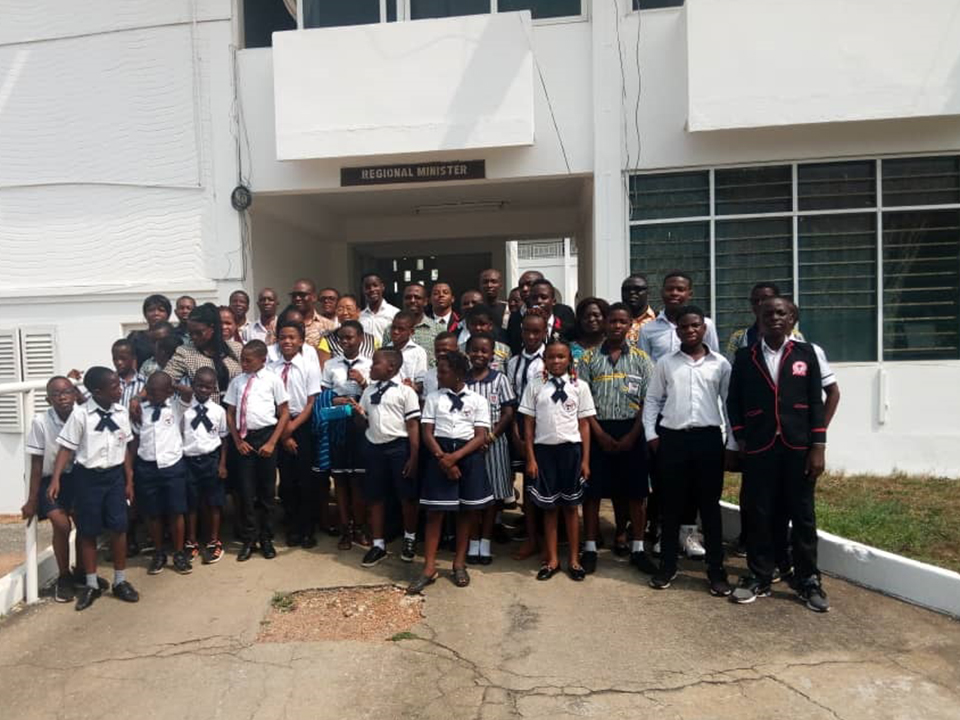The School of Agriculture, has organised a five-day training in "Principles and Practice of Land Surveying" for practitioners and professionals in Land Surveying and Town and Country Planning Department.
The workshop is among the series of training programmes being organised by the various Departments of the School of Agriculture to upgrade the knowledge and skills of practitioners and professionals from various fields. Participants for the workshop were from different regions of the country working in the Town and Country Planning, Department of Survey, Lands Commission and private surveyors. They were taken through topics such as: “Understanding the basic principles in plane surveying; Comprehending the fundamentals of traversing in Land Surveying; Application of GPS techniques in Land Surveying; Application of the general ethics in Land Surveying and Understanding land laws in Ghana”.
In his opening remarks, the Coordinator of the short courses at the School, Dr. Julius Hagan, entreated participants to take the training seriously and consider upgrading themselves regularly to be abreast with current trends in the industry. He noted that the School has designed series of short courses for different categories of professionals and encouraged other interested groups to enrol to upgrade themselves.
A Senior Lecturer at the Department of Soil Science Dr. Edward A. Ampofo, advised the participants to consider constant upgrading of skills and knowledge to ensure their continuous stay in business. Professor Okai-Anti, from the Department entreated the trainees to abide by the ethics of the profession in order to keep faith with their clients. Present at the opening ceremony were, Dr. Kofi Attia and Dr. Chris Phares, from the Department of Soil Science. Others included Dr. Martin Bosompem of the Department of Agricultural Economics and Extension.
The training was facilitated by Engineer Dr. Ebenezer Gyamera, of the Department of Soil Science, who was also one of the instructors. Other instructors were, Engr. Twum; Surveyor Christian Quarcoo; Prof. Kumi Boateng; and Lawyer Acquah-Annan.

